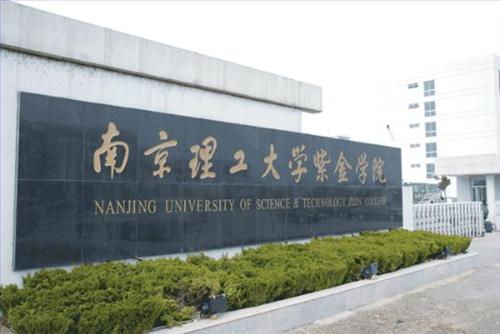Jiangsu brightens future of independent colleges

The Zijin College of Nanjing University of Science and Technology is one of 25 independent colleges in Jiangsu. Named after a State-run university, the college owns an independent campus and gains support from two local enterprises. Jiangsu recently announced a series of guidelines to standardize the development of independent colleges. Continuous inspections will last until 2022. [Photo/sogou.com]
Jiangsu province recently established guidelines to standardize and develop its independent colleges.
As a school administration model with a distinctive Chinese style, independent colleges are privately operated schools offering undergraduate education, which have gained support from both public universities and non-governmental sectors.
Jiangsu, an early developer of independent colleges, has established 25 such schools in the province, the highest number in China.
With a reputation for educational quality, Jiangsu’s independent colleges are currently teaching 213,000 students, almost half of the province’s total number of students at private colleges and universities.
Jiangsu government officials, such as Wang Chengbin, deputy director-general of the Jiangsu Provincial Department of Education, also regard independent colleges as an important part of the province’s higher education system.
“The guidelines will enrich educational resources, help cultivate professionals and boost economic development,” Wang said.
Jiangsu’s independent colleges may be prospering but problems still exist, such as those concerning property rights and faculty training.
As independent colleges in China are usually named as affiliated schools of specific public universities, the most glaring problem lies with the schools’ vague indentity as public or private.
Solutions to these problems and the method of standardizing the schools’ development can be found in the guidelines announced by Jiangsu recently.
Independent colleges that plan to continue operating can now transfer to wholly private-owned entities after strict and thorough financial settlement. If they meet public college standards, they can develop amixed ownership in cooperation with enterprises, social organizations and other public institutes. Colleges can also apply to cease running the school, ensuring a smooth transition.
Xu Tailai, of Jiangsu Education Department’s development and planning division, said the province would pay continuous attention to the schools and offer them policy support.
“The guidelines highlight eight categories of supportive policies,” he said.
According to Xu, the policies don’t just cover discipline, development and talent cultivation, but also provide schools with tax benefits, land-use privileges and other diversified support.
“The impact of these guidelines will finally work to our students’ benefit,” added Xu.
Jiangsu has planned to complete initial improvements of the 25 independent colleges by 2022 when qualified schools will be developed as pilot and application-oriented institutes and will feature integration of universities, research programs and industries.


 Jiangsu college students tell inspiring campus stories
Jiangsu college students tell inspiring campus stories